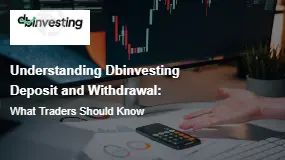G7 Finance Chiefs Meet & Address Global Economic Uncertainty
Abstract:Finance leaders of the Group of Seven nations warned of heightening global economic uncertainty on Saturday as they wrapped up a three-day meeting overshadowed by a US debt ceiling stalemate and the fallout from Russia's invasion of Ukraine.

Finance leaders of the Group of Seven nations warned of heightening global economic uncertainty on Saturday as they wrapped up a three-day meeting overshadowed by a US debt ceiling stalemate and the fallout from Russia's invasion of Ukraine.
In a meeting held by the G7 Finance Chiefs, which took place in Niigata, Japan, this weekend, one of the agenda items discussed the global economy. These financial ministers say that US Debt Crisis looms as a threat that must be faced.
Group of Seven (G7) finance ministers and central bank governors attended the meeting, which took place in Japan. This weekend, they warned of heightened uncertainty and vowed to take action.
All of these efforts must be made to ensure financial stability at the global level. The joint statement stated that the G7 finance ministers and central bank governors would try to remain vigilant and stay agile.
Moreover, flexible efforts will also be made for macroeconomic policy amid uncertainty regarding the economic outlook. The meeting results were concluded on Saturday, and the concern for US debt is the most important.
In fact, according to the Bank of Japan Governor, Kazuo Ueda, they will try their best to overcome the global economy, which is overshadowed by a US debt ceiling and other geopolitical problems.

At G7 Meeting, Finance Chiefs Warning About Economic Outlook as US Debt Crisis Looms, Need to Weigh Effects of Past Rate Hike
The gathering in the Japanese City of Niigata is the first step to addressing this increasingly complex economic problem. With this meeting, many central banks face an inflection point, with interest rates that can be hiked aggressively soon.
Aggressive interest rate hikes are a way to cool growth and unsettle the banking system. In other words, finance leaders must immediately set a year-end deadline for launching a new scheme to diversify global supply chains.
But it is said that the G7 countries will work to ensure foreign investment and not undermine economic sovereignty. US Treasury Secretary Janet Yellen also said that this standoff was getting more difficult, but all financial chiefs remained hopeful that there would be a solution.
It can be said that rich nations have felt the impact of the interest rate they set. Understanding the effect of past interest rate hikes will impact economies and inflation so that the point is taken to guide monetary policy.
“I told the G7 meeting that Japan will continue to maintain the ultra-loose monetary policy to sustainably and stably achieve the Bank of Japan's target of 2 percent inflation,” said Bank of Japan Governor Kazuo Ueda and Finance Minister Shunichi Suzuki to the news conference.
With this meeting, the Group of Seven has officially set a year-end deadline to create a scheme to diversify global supply chains. The Central Banks of these countries are firmly committed to ensuring inflation expectations and achieving price stability.
G7 Will Undertake Efforts to Diversify Supply Chains and Filling Bank Regulatory Gaps and Agrees on Financial System Resilient
The meeting was also not without results because one of the solutions that the chiefs from the economic sectors of these countries will try is to diversify supply chains this year. These efforts will add motivation for the new framework and focus on clean energy technology.
However, the first step must be to agree on a resilient global financial system. The banking system is the focus of the central banks, and monetary policy is the task of the finance minister. G7's relationship with China will also get better after the agenda of the summit.
“We will continue to work closely with supervisors and regulate authorities to monitor financial sector development. Stand ready to take appropriate actions to maintain financial stability and resilience,” stated the statement.
The Group of Seven (G7) held a meeting attended by the finance ministers of member countries and leaders of the central bank. This agenda discusses their concern for the global economy, especially because US debt looms are getting worse and more worrying.

Read more

Understanding Dbinvesting Deposit and Withdrawal: What Traders Should Know
When choosing a forex broker, few things matter more than how easy it is to make investments and withdraw them. Looking into the Dbinvesting Deposit and Dbinvesting Withdrawal processes is an important part of researching this broker. At first glance, this broker offers normal payment options. However, many users have reported serious problems that show a big difference between what the company promises and what actually happens to real traders. This article aims to give you the complete, honest truth. We will look at both the official procedures that Dbinvesting advertises and the real risks that every trader needs to know about. Here's some important background: as of early 2026, WikiFX (a global financial review website) gives Dbinvesting a very low score of 2.14 out of 10 and warns users to "Low score, please stay away!" This creates a dangerous situation where traders need to be extremely careful. This guide will first explain the payment methods the company claims to offer, then

Dbinvesting User Reputation: Is It a Safe Broker or a Scam?
When checking for a broker, the most important question is always about safety. Is my capital secure? Can I take out my profits? For Dbinvesting, the evidence we have gathered points to a conclusion that should make any trader think twice. Based on a thorough review of user feedback, regulatory status, and how transparent they are, Dbinvesting presents a high potential risk to its clients. We don't make this claim lightly; it's based on facts we can verify and a clear pattern of user-reported problems that can't be ignored.

Dbinvesting Regulation: A Complete Guide to Its License and High-Risk Status
When looking at a broker, the first question is always about safety. Is Dbinvesting a safe platform for your investments? The immediate answer is complicated and requires extreme caution. While Dbinvesting is officially a regulated company, its license comes from the Seychelles Financial Services Authority (FSA), which is classified as an offshore regulator. This difference is important and forms the basis of the high-risk status connected to this broker. This initial concern is made worse by objective, third-party data. As of our 2026 review, Dbinvesting holds an extremely low WikiFX safety score of just 2.14 out of 10. This score is not random; it is a data-based reflection of the broker's weak regulation, lack of transparency, and most importantly, its track record with clients. The platform has been flagged for a large number of serious user complaints, which show a disturbing pattern of issues, especially concerning withdrawing funds and the random cancellation of profits. The pu

Axi Launches Direct Crypto Trading Service as Brokers Expand Digital Asset Offerings
With the launch of the Axi Buy Crypto service, the company joins brokers such as Pepperstone and IG that have begun offering direct cryptocurrency trading to clients.
WikiFX Broker
Latest News
RM115 Million Lost in a Month: Are Malaysians Underestimating Investment Scams?
Invest RM300, Make RM10,000? Police Say It’s a Scam
Middle East Tensions Rattle Risk Sentiment: Airspace Closures Signal Supply Fears
War in the Middle East: Oil Spikes and Stocks Tumble as Conflict Enters "Uncharted Territory"
CySEC Withdraws CIF License of OBR Investments Ltd (OBRInvest)
Investment Scams That Could Be Targeting Malaysians Right Now
Geopolitical Conflict Drives Gold Rally as Insurers Cut Gulf Coverage
FX Markets: King Dollar Reigns Amid Chaos; BoJ Eyes "Neutral" Rates
Oil Markets Rally as Escalating Middle East Conflict Threatens Supply Lines
XBTFX Review: Beware of Offshore Regulated Forex Traps
Rate Calc

